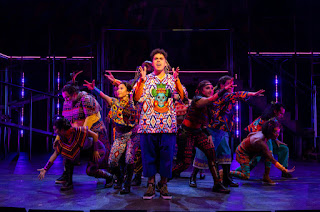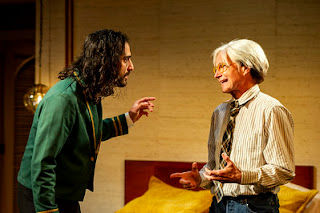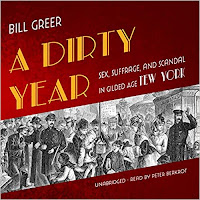Mahaiwe, Great Barrington, MA
June 25, 2022
by Michael J. Moran
Founded in 1972, the Aston Magna Music Festival calls itself “the longest running annual summer festival in America devoted to music performed on period instruments,” that is, “as the composer imagined it.” They opened their 2022 season with an inspired program of two musical stories about the devil’s intervention in human affairs written two centuries apart with contrasting outcomes and very different sound worlds.
The earlier score, Italian composer Alessandro Scarlatti’s 1704 oratorio “Humanita e Lucifero” (“Humanity and the Devil”) for two solo voices and small instrumental ensemble, had the happier ending. Written for a church service in a series of recitatives (sung speeches) and arias, it would have been interrupted by a sermon presenting the moral of the story. The goodness of the newborn Virgin Mary, representing humanity, vanquishes the evil of Lucifer, the Devil.
Kristen Watson’s clarion soprano found both tenderness and strength in Mary, while Frank Kelley’s florid tenor gave Lucifer a comic swagger that entertainingly foretold his opponent’s victory. Daniel Stepner on violin led the ensemble in a buoyant account, and his “free translation” of the anonymous text (recitatives were sung in English, arias in Italian) was helpfully readable in the dim house lighting.
Igor Stravinsky’s 1918 theater piece “L’Histoire du Soldat” (“The Soldier’s Tale”) is based on a Russian folktale about a soldier who trades his fiddle to the devil (in disguise) for material wealth. Written for three actors, a dancer, and, according to Stepner’s program notes, “a rag-tag village band – a sort of Klezmer ensemble,” Swiss writer C. F. Ramuz’s original French text invites translation for local productions.
Jack Greenberg vividly rendered the soldier’s shifting emotions, David McFerrin was an alluring, sometimes amusing devil, and DeAnna Pellechia gracefully danced her small role as the soldier’s would-be bride. Kelley, who also directed the powerfully minimal staging, was a droll narrator of Stepner’s up-to-the-minute translation, which tartly echoes current US politics. Again, playing violin, the translator drew sharp-edged performances from the musicians.
As should be clear by now, the real star of this show was Stepner, who is also celebrating his 30th year as Aston Magna’s Artistic Director. The next four weekends promise other enticing Aston Magna concerts, including Clara Schumann (June 30-July 2) and Francois Couperin (July 21-23).


















